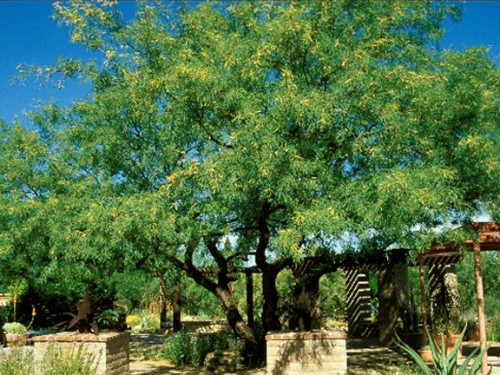SRP Customers Can Earn Two Free Shade Trees This Week and Next Month
Workshop Now Held Online in August and September
WHAT:
SRP Shade Tree Program provides customers with two, free desert-adapted trees to help them save energy, conserve water and beautify their  landscapes. Shading a home helps to reduce cooling costs, improve air quality and lower the Valley's heat effect without using a lot of water.
landscapes. Shading a home helps to reduce cooling costs, improve air quality and lower the Valley's heat effect without using a lot of water.
To receive free trees, participants are required to attend a free, online webinar to learn how to best plant and care for the free trees. Space is limited. Reserve a spot by signing up online, at www.srpnet.com/shadetrees. For more information, call (602) 325-1254.
Customers will be notified of the date for a safe, contactless pickup following the webinar. The trees come in 5-gallon containers and range in height from 4 to 6 feet.
WHEN:
Saturday, August 15 at 10 a.m. |
Wednesday, August 26 at Noon |
Wednesday, September 16 at Noon |
DETAILS:
Program requirements:
- Must be a current residential SRP electric customer and attend a Shade Tree workshop.
- Have the legal right to plant trees on the property
- Plant trees on the south, west and east sides of your home
- Plant trees within 15 feet of exposed exterior walls and windows
- Have the ability to care for the tree, as needed
- Have not previously received trees for the property from an SRP shade tree workshop
Before planting a tree, call Arizona811 to find out where existing underground lines are located. One call to this free service notifies the appropriate local utilities, which send technicians to the requested site to mark the approximate location of existing underground lines.
SRP is a community-based, not-for-profit public power utility and the largest provider of electricity in the greater Phoenix metropolitan area, serving more than 1 million customers. SRP also is the metropolitan area’s largest supplier of water, delivering about 800,000 acre-feet annually to municipal, urban and agricultural water users.
